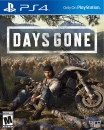S.Peelman said:
Ryuu96 said:
(..) I wonder if it's a lack of education on the events of WW2 (..) |
Yes. I've always said 'history' is by far the most important subject in school. Because contrary to pretty much every other subject, it makes one wiser. It teaches what went right and what went wrong. Without knowing what was before, things are bound to repeat itself. Sadly politicians are blind and don't see it that way for some reason. |
As long as it's unbiased.
Growing up in the Netherlands it wasn't until much later in life that I realized history in high school was a big white wash of history. Nothing about apartheid, the slave trade, Boer wars, Indonesia massacres. Instead all about the golden age, victories of Willem of Oranje, spice trade with Indonesia, and then the evil Germans. WW1 and WW2 omitted the world stage pretty much. In fact I got nothing about the Middle East in school (that while the first Iraq war was happening while I was in high school), very little about Russia (also the fall of the Soviet Union happened when I was in school).
Most of it was ancient history, Mesopotamia, Romans, Greeks, Egypt, Mongolians, Vikings, Dark Ages, Spanish inquisition, French revolution, 'discovery' of America, British empire. Really nothing very useful to understand today's conflicts and how not to repeat the same mistakes. It was good for trivia knowledge... Not even anything about trading New Amsterdam for Suriname nor the Dutch Antilles.
Modern history needs to be taught in school without white washing. But of course each country wants to paint themselves in the best light. Colonialism was always presented as bestowing the gifts of European greatness on new nations. Yuck.
How history is taught in school (or was when I was in school) is partly responsible for the apathy now towards Ukraine and Gaza.


































































